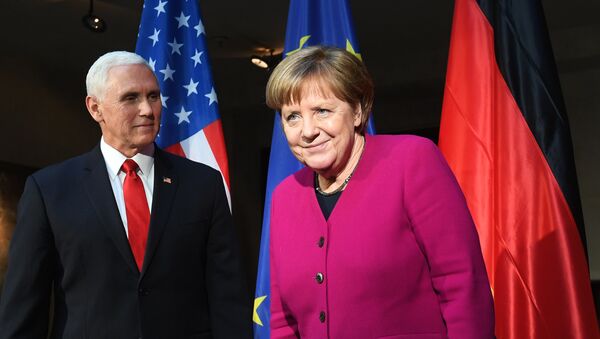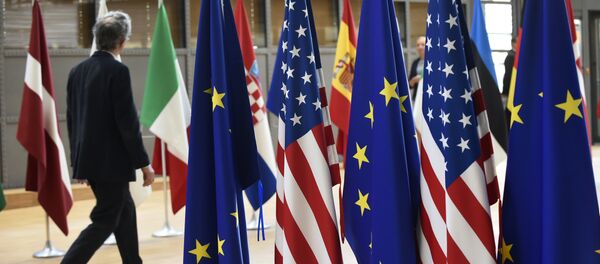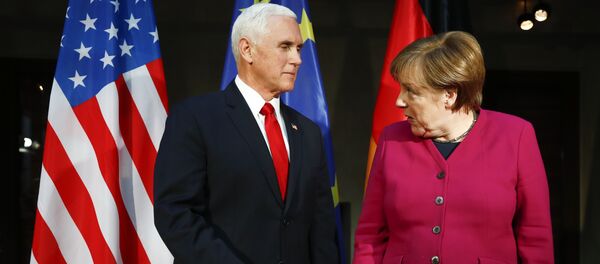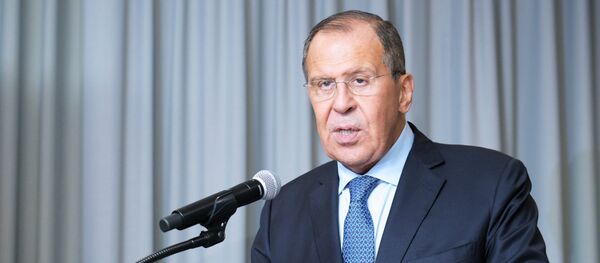This year's Munich Security Conference included harsh barbs between Berlin and Washington, with German Chancellor Angela Merkel lashing out at the Trump administration over its policies and reiterating Europe's support for multilateralism.
Merkel's speech included criticism of President Trump's decision to pull out of the 2015 Iran nuclear deal, as well as the 1987 Intermediate-Range Nuclear Forces Treaty with Russia, with the chancellor saying Europe has been left sitting "there in the middle with the result". The chancellor also defended Berlin's gas deals with Russia, recalling that Germany "imported large amounts of Russian gas" even during the Cold War, and asking whether the West's goal was to drive Russia into China's arms. "Is that our European interest? I don't think so," she said.
That sentiment was echoed in the German press, with Spiegel describing Pence's message of "renewed American leadership on the world stage" as something out of a "strange parallel world" having "little to do with reality".
The Washington Post was similarly unflattering, characterising US-European relations as "on the rocks" and saying they were unlikely to "get better anytime soon". Taking a view beyond the specific disagreements expressed in Munich, WaPo columnist Henry Olsen suggested that the tensions extend to ideological differences between the US and Europe, including differences on climate change, US tariffs on China, US insistence that NATO members all spend 2 percent of their GDP on defence, and tensions over trade.
Emphasising that any Republican president would be similarly grating to the Europeans, Olsen admitted that even a Democrat in the White House might not fix the US-European rift, given the increasingly divergent meanings attached to the phrase "American leadership" on opposite sides of the Atlantic.
"Our marriage with Europe is on the rocks no matter who leads us. Without serious and difficult communication and compromise from both sides, further estrangement is likelier than renewed devotion," the journalist concluded.
"If anyone had any illusion about the state of transatlantic relations in the Trump era, the 55th Munich Security Conference…should have opened their eyes on the real state of affairs once and for all," the French daily lamented.
Recalling Pence's speech and his demands that European powers including Germany, France and the UK stop easing anti-Iranian sanctions, Le Monde stressed that "Pence's moralising speech in Munich, consisting of a mix of warnings and reproaches but none of the usual beautiful words about the obligations of the United States to its NATO allies, received an icy welcome."
Merkel's rebuke of Pence on policy issues was particularly telling, Le Monde added. "The fact that Angela Merkel, leader of the country which had been Washington's most faithful ally on the European continent for over half a century, inherited the role" of voicing the response to Pence, "says a lot about the poor state of transatlantic relations", the paper stressed.





